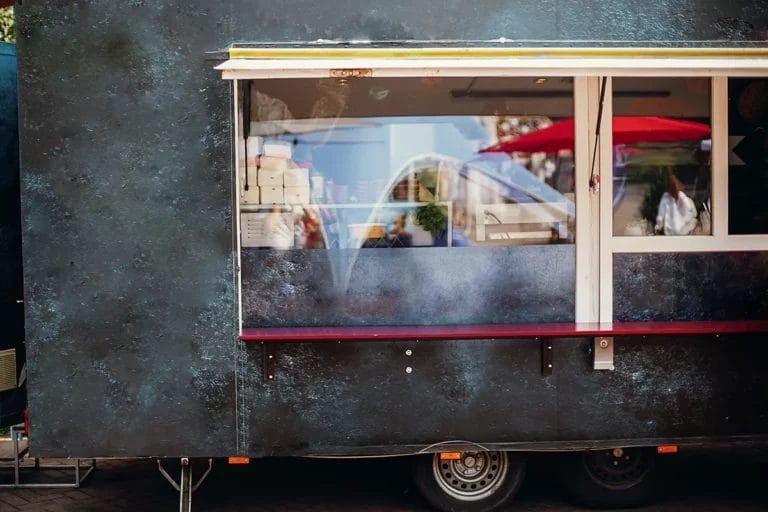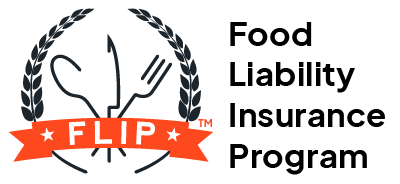From the Philly cheesesteak to Hershey’s chocolate, Pennsylvania has a rich foodie history. It’s not surprising that The Keystone State is also a hub for food trucks, with folks embracing the convenience and unique fare of these businesses.
Ready to join in on the fun with a business of your own? Our guide walks you through how to start a food truck in Pennsylvania, from necessary licenses to costs you should expect to tips for success.
Find out which city in Pennsylvania made our list of the best cities for starting a food truck! Check out the full report today.
Understand Requirements for Starting a Food Truck in Pennsylvania
Before you even buy your food truck, start with these requirements for your Pennsylvania business:
- Business name: A good food truck name is short, catchy, and clearly states what kinds of foods and/or beverages you sell.
- Business classification: This classification determines how your business will be taxed. Most food trucks are sole proprietorships, but yours might be a partnership or a limited liability company (LLC).
- Certificate of Insurance (COI): Otherwise known as your proof of insurance, this document includes important details about your coverage and is often required for participation in Pennsylvania food truck festivals.
- Employer identification number (EIN): After registering your business with the Internal Revenue Service (IRS), you will receive this nine-digit number to use for tax purposes.
- Business plan: Your business plan is your roadmap to success, containing everything from your marketing strategy to your menu pricing. Most banks and lenders will ask to see this before issuing a loan.
Obtain Food Truck Permits in Pennsylvania
Pennsylvania requires anyone starting a food truck to apply for a variety of permits and licenses before they can legally operate.
Keep in mind that while some of these licenses are required at the state level, you may also need some that are specific to the city or cities you operate in. Always check with your local government to determine what you need.
Pro Tip: The Pennsylvania Department of Agriculture (PDA) has a thorough PDF guide explaining the state’s guidelines for permanent and temporary mobile food business permitting.
Mobile Food Facility (MFF) License
- State-level license that includes a plan review and inspection to confirm your food truck complies with state laws
- Cost: $103–$241 (depending on size of operation), plus $82 annual fee and $600 in inspection fees (paid across three inspections)
- Where to get it: Pennsylvania Department of Agriculture MFF Application
Local Health Department License
- A health inspection permit issued by your local health department (may be needed in addition to your MFF license, depending on where you live)
- Cost: Varies depending on location
- Where to get it: Your county or municipal health department via the Commonwealth of Pennsylvania’s directory
Food Employee Certification (FEC)
- If you have an MFF Type 3 or 4 business, you must have one FEC employee available (but not necessarily present) during operating hours
- Cost: Varies depending on which course you take, but typically around $121
- Where to get it: Approved certification courses
Sales Tax Permit
- Necessary to collect and remit state and local sales tax
- Cost: $0
- Where to get it: myPATH
Follow Pennsylvania Food Truck Laws
There are many laws you need to follow to legally operate your Pennsylvania food truck. Failure to follow these laws, even if you weren’t aware of them, can result in revoked licenses and permits and a temporary (or permanent) shutdown of your business.
Some of the most important laws for Pennsylvania food trucks are:
- Commissary requirement: Most MFFs in Pennsylvania are required to use a licensed commissary or commercial kitchen for food storage and/or prep. The commissary is considered the base of your food truck operations.
- Employee health policy: Pennsylvania requires all MFFs to have an established and enforced employee health policy, which mandates that sick employees cannot handle food, equipment, or utensils.
- Handwashing facilities: Pennsylvania requires different levels of handwashing facilities according to the type of MFF you run. For example, a Type 1 MFF can operate with just food-safe hand sanitizing wipes, whereas Types 3 and 4 are required to have a convenient handwashing sink with hot and cold running water.
Pro Tip: Learn more about what to look for in a commercial kitchen or commissary so you can pick the best one for your food truck.
Get Pennsylvania Food Truck Insurance
Owning and operating a food truck in Pennsylvania is an exciting process, but it’s not without risks. You’ve probably already thought about commercial auto insurance, but don’t forget about food truck liability insurance, too.
A customer could get sick from a foodborne illness in something you served them, or trip over your generator’s extension cord and injure themselves. Either one of these incidents could end in an expensive lawsuit.
The average cost of a food truck claim is $6,271. If you don’t have insurance, that expense could come directly out of your pocket.
With Pennsylvania food business insurance from Food Liability Insurance Program (FLIP), your policy could cover some or all of the cost of a claim like this, allowing you to keep your business running despite any speed bumps.

Learn the Cost of Starting a Food Truck Business in Pennsylvania
The U.S. Chamber of Commerce found that the average food truck owner spends over $28,000 a year on meeting legal requirements alone.
However, licenses and permits aren’t the only costs you need to budget for. Other expenses include:
- Food truck
- New: $75,000–$150,000
- Used: $20,000–$80,000
- Custom-branded wrap: $2,500–$5,000
- Cooking equipment
- Grill or griddle: $2,500
- Deep fryer: $1,200
- Convection oven: $1,000–$3,500
- Microwave: $250–$800
- Refrigeration
- Refrigerator/freezer combo: $2,000–$5,000
- Prep table with refrigeration: $1,000–$3,000
- Safety and sanitation
- Three-compartment sink: $1,000-$2,500
- Handwashing sink: $200–$500
- Fire suppression system: $1,500–$3,000
- First aid and personal protective equipment (PPE): $100–$300
- Power supply
- Generator: $3,000–$10,000
- Backup power: $500–$2,000
- Technology
- Point of sale (POS) system: $1,000–$3,000
- Inventory software: $240–$2,400
- Tablet: $300–$1,000
- WiFi or mobile hotspot: $100–$300
Pro Tip: A proven pricing strategy helps you cover your expenses while protecting your profit margins!
Sell at Food Truck Festivals in Pennsylvania
Pennsylvania’s foodie culture means lots of food truck festivals across the state. These festivals are an excellent way to gain exposure to more customers and establish your brand in the local food truck scene.
Once you’re ready to hit the festival circuit, check out these events:
Pro Tip: One great way to keep your finger on the pulse of upcoming events (and network with other entrepreneurs) is to join a Pennsylvania food truck association, such as the Philadelphia Food Truck Association or the Greater Lehigh Valley Mobile Food Alliance.
FAQs About Starting a Food Truck in Pennsylvania
Are There Specific Zoning Regulations for Food Trucks in Pennsylvania?
Yes, you must adhere to zoning and parking regulations while operating your food truck, but the exact rules differ from city to city.
Some of the most common regulations include:
- Distance requirements: You may not be able to park your truck within a certain number of feet from a brick-and-mortar restaurant, retail store, or school
- Operating hours: Many cities have restrictions or curfews for how late mobile food businesses can remain open
- Time limits: Some cities restrict the length of time you can leave your truck parked in one specific location
- Permits: Check with your city to see if you need a special parking permit for your food truck, especially in a high-traffic area
What Are the Fire Safety Requirements for Food Trucks in Pennsylvania?
Like zoning and parking regulations, fire safety requirements can vary by location. Always check your city or county Fire Marshal’s website to confirm what the fire safety code is where you live.
Common fire safety standards in Pennsylvania include:
- A Type I hood installed in your food truck if you produce grease-laden vapors while cooking
- An automatic fire suppression system installed in your food truck
- The appropriate type of fire extinguisher available in your food truck, according to the types of fuels you use to cook

Alex Hastings
Seattle-based copywriter and (WA) licensed insurance agent Alex Hastings leverages her experience as a lover of fast-casual food, baked goods, and iced oat milk lattes. She holds a B.A. in Creative Writing from Western Washington University. Before working at Veracity, she was a retail copywriter at Zulily and an English language teacher in South Korea. Alex is fully trained on FLIP insurance coverages and writes content that connects food and beverage business owners with the policies they need.
Seattle-based copywriter and (WA) licensed insurance agent Alex Hastings leverages her experience as a lover of fast-casual food, baked goods, and iced oat milk lattes. She holds a B.A. in Creative Writing from Western Washington University. Before working at Veracity, she was a retail copywriter at Zulily and an English language teacher in South Korea. Alex is fully trained on FLIP insurance coverages and writes content that connects food and beverage business owners with the policies they need.

Kyle Jude
Kyle Jude is the Program Manager for Food Liability Insurance Program (FLIP). As a dedicated program manager with 10+ years of experience in the insurance industry, Kyle offers insight into different coverages for food and beverage business professionals who are looking to navigate business liability insurance.
Kyle Jude is the Program Manager for Food Liability Insurance Program (FLIP). As a dedicated program manager with 10+ years of experience in the insurance industry, Kyle offers insight into different coverages for food and beverage business professionals who are looking to navigate business liability insurance.

